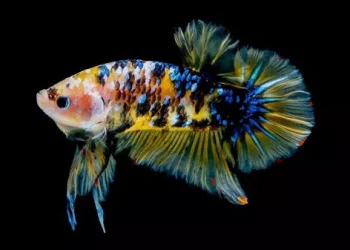Bearded Collies, known for their long, flowing coats, playful personalities, and intelligent nature, are a beloved breed for many families. With their distinct appearance and friendly disposition, these dogs are both charming and active, often acting as a joyful companion for children and adults alike. However, like all dog breeds, Bearded Collies can be susceptible to certain health issues.
Understanding the potential illnesses that Bearded Collies may face is crucial for ensuring they lead long, healthy lives. In this article, we will explore the common health problems specific to Bearded Collies, their causes, symptoms, treatment options, and preventive measures that can help keep your dog happy and healthy.
Overview of the Bearded Collie Breed
Before diving into the illnesses that affect Bearded Collies, it’s important to understand a bit about their characteristics. Bearded Collies, often affectionately called “Beardies,” are a medium-sized breed originally from Scotland. They were primarily bred as herding dogs, requiring intelligence and agility to manage livestock in harsh weather conditions.
These dogs are known for their thick, double-layered coat, which can be both a blessing and a challenge when it comes to grooming. They are friendly, energetic, and affectionate, thriving in environments where they can get plenty of exercise and attention. Because of their lively nature, Bearded Collies need both mental and physical stimulation to stay healthy.
Though the Bearded Collie is generally a robust breed, certain genetic traits make them more prone to certain illnesses. Below, we will detail the most common health problems that Bearded Collies are susceptible to and provide advice on how to manage them.
1. Hip Dysplasia
What Is Hip Dysplasia?
Hip dysplasia is a genetic condition where the hip joint doesn’t develop properly, leading to an unstable joint. Over time, this instability can cause the joint to deteriorate, leading to arthritis and pain. This condition is common in many larger dog breeds but can also affect medium-sized breeds like the Bearded Collie.
Symptoms of Hip Dysplasia
Dogs with hip dysplasia may show symptoms such as:
- Difficulty getting up from a lying position
- Stiffness, especially after exercise
- A “bunny hopping” gait, where both hind legs move together
- Decreased activity or reluctance to run and play
- Limping or favoring one leg
- Pain when the hips are touched or manipulated
Causes of Hip Dysplasia
Hip dysplasia is primarily a genetic condition. However, factors such as rapid growth, obesity, and excessive exercise during puppyhood can exacerbate the condition. The conformation of the hip joint plays a significant role in whether a dog develops hip dysplasia.
Treatment and Management
Treatment options for hip dysplasia can range from conservative management to surgery. In mild cases, weight management, joint supplements, and anti-inflammatory medications can help alleviate discomfort and prevent further damage. More severe cases may require surgical interventions, such as hip replacement surgery or a procedure called femoral head ostectomy (FHO), to remove the affected portion of the hip.
Prevention
To reduce the risk of hip dysplasia, it is essential to choose a reputable breeder who screens for hip dysplasia in the parent dogs. Maintaining a healthy weight and avoiding over-exercising puppies can also help manage the risk.
2. Progressive Retinal Atrophy (PRA)
What Is Progressive Retinal Atrophy?
Progressive Retinal Atrophy (PRA) is a group of genetic diseases that cause the gradual degeneration of the retina in a dog’s eyes. This degeneration leads to vision loss, typically starting with night blindness and progressing to complete blindness.
Symptoms of PRA
- Difficulty seeing in low light or at night
- Hesitation or confusion when moving in unfamiliar areas
- Cloudy eyes or dilated pupils
- Bumping into objects or difficulty navigating
Causes of PRA
PRA is inherited, and Bearded Collies are known to be one of the breeds at higher risk for this condition. The genetic mutation causing PRA can be passed down from one or both parents. It is a progressive condition, meaning the symptoms worsen over time.
Treatment and Management
There is currently no cure for PRA. As the condition progresses, a dog may lose its vision entirely. However, with early detection, owners can take steps to make their dog’s life easier. Providing a stable and familiar environment, using toys or cues to aid in navigation, and avoiding changes in the home layout can help dogs with PRA adapt to their vision loss. Regular check-ups with an ophthalmologist are essential for monitoring the condition.
Prevention
Genetic testing can identify dogs carrying the PRA gene. Responsible breeders screen for PRA to avoid passing it on to offspring. If you are considering getting a Bearded Collie, ensure the breeder tests the parent dogs for PRA to reduce the risk.
3. Autoimmune Thyroiditis (Hypothyroidism)
What Is Autoimmune Thyroiditis?
Autoimmune thyroiditis is a condition where the dog’s immune system attacks the thyroid gland, impairing its ability to produce thyroid hormones. The thyroid hormones are crucial for regulating metabolism, so when the thyroid gland is damaged, it leads to hypothyroidism (an underactive thyroid).
Symptoms of Hypothyroidism
The symptoms of hypothyroidism can be subtle but may include:
- Weight gain despite normal eating habits
- Lethargy or reduced energy
- Dry or thinning coat, hair loss
- Skin infections or dandruff
- Sensitivity to cold temperatures
- Behavioral changes, such as irritability or depression
Causes of Hypothyroidism
Hypothyroidism in Bearded Collies is commonly caused by autoimmune thyroiditis, where the body mistakenly targets the thyroid gland. Genetic factors play a significant role in this disease, and it is more commonly seen in middle-aged dogs.
Treatment and Management
Hypothyroidism is treated with synthetic thyroid hormone replacement. This medication helps to regulate the dog’s metabolism and alleviate symptoms. Once the appropriate dose is determined, dogs typically respond well to treatment, and their condition stabilizes.
Prevention
Since autoimmune thyroiditis is genetic, it cannot be prevented entirely. However, regular health check-ups and early blood tests can help detect thyroid imbalances before they lead to more serious issues.
4. Collie Eye Anomaly (CEA)
What Is Collie Eye Anomaly?
Collie Eye Anomaly (CEA) is a genetic condition that affects the eyes of certain dog breeds, including the Bearded Collie. It leads to abnormalities in the retina and other parts of the eye, which can cause partial or complete blindness.
Symptoms of CEA
The symptoms of CEA can vary but may include:
- Vision problems or blindness
- Retinal detachment (sometimes detectable through eye exams)
- Abnormal eye structures
Causes of CEA
CEA is inherited, and affected dogs are typically born with the condition. It is most commonly found in dogs with a genetic predisposition, such as Bearded Collies, Collies, and other related breeds.
Treatment and Management
Unfortunately, there is no treatment to cure CEA, and it can lead to blindness in affected dogs. Early diagnosis can help owners manage the condition by creating a safe environment for the dog and helping them adapt to vision loss. Regular veterinary check-ups, particularly eye exams, are crucial in managing the condition.
Prevention
CEA is a hereditary disease, so genetic testing of potential breeding dogs is essential to prevent the condition from being passed on to future generations.
5. Canine Cancer
What Is Canine Cancer?
Cancer is a general term for a group of diseases in which abnormal cells grow uncontrollably. Bearded Collies, like all dogs, are susceptible to various types of cancer, including lymphoma, hemangiosarcoma, and osteosarcoma.
Symptoms of Canine Cancer
Signs of cancer in Bearded Collies can vary depending on the type and location of the tumor but may include:
- Lumps or bumps that grow over time
- Weight loss and poor appetite
- Lethargy or reduced activity
- Difficulty breathing, coughing, or wheezing
- Unexplained bleeding or bruising
- Changes in bathroom habits (diarrhea, blood in urine, etc.)
Causes of Cancer
While cancer can affect any dog, genetic factors, age, and environmental exposures can increase the risk. Some breeds are more genetically predisposed to certain types of cancer.
Treatment and Management
Treatment options for canine cancer depend on the type and stage of the cancer. Common treatments include surgery, chemotherapy, radiation therapy, and immunotherapy. Early detection is key to improving outcomes, so regular veterinary check-ups and screenings are important for older dogs or those at higher risk.
Prevention
While there is no guaranteed way to prevent cancer, minimizing environmental toxins, maintaining a healthy diet, and avoiding excessive exposure to the sun or other carcinogens can help reduce the risk.
6. Canine Inherited Neuropathy (CIN)
What Is Canine Inherited Neuropathy?
Canine Inherited Neuropathy (CIN) is a genetic condition that affects the nervous system of Bearded Collies. This disorder leads to weakness, coordination problems, and muscle wasting, especially in the hind limbs.
Symptoms of CIN
Dogs with CIN may show signs such as:
- Difficulty walking or running
- Weakness in the hind legs
- Uncoordinated movement
- Muscle wasting or loss
Causes of CIN
CIN is an inherited disorder, and Bearded Collies are one of the breeds at risk. The condition is caused by a mutation in the genes responsible for nerve function, leading to progressive nerve damage.
Treatment and Management
There is no cure for CIN, and management is focused on maintaining the dog’s comfort and quality of life. Regular physical therapy and joint supplements can help alleviate symptoms. Dogs with CIN may eventually require mobility aids, such as wheelchairs, to assist with movement.
Prevention
Genetic testing can help identify affected dogs before breeding. Responsible breeders screen for this condition to prevent passing it on to future generations.
Conclusion
The Bearded Collie is a wonderful breed with a rich history, endearing personality, and loveable traits. However, like all dogs, they are prone to certain health conditions. Understanding the common illnesses that affect Bearded Collies can help you become a proactive pet owner, ensuring that your dog gets the best care possible. Regular vet visits, proper nutrition, exercise, and responsible breeding practices are essential for maintaining your Bearded Collie’s health.
By being informed about potential health issues, you can recognize early signs of illness and take swift action to seek treatment, improving your dog’s quality of life. Proper preventive measures can also help reduce the risks associated with genetic conditions and allow your Bearded Collie to live a happy, healthy life by your side.
Related Topics:
























